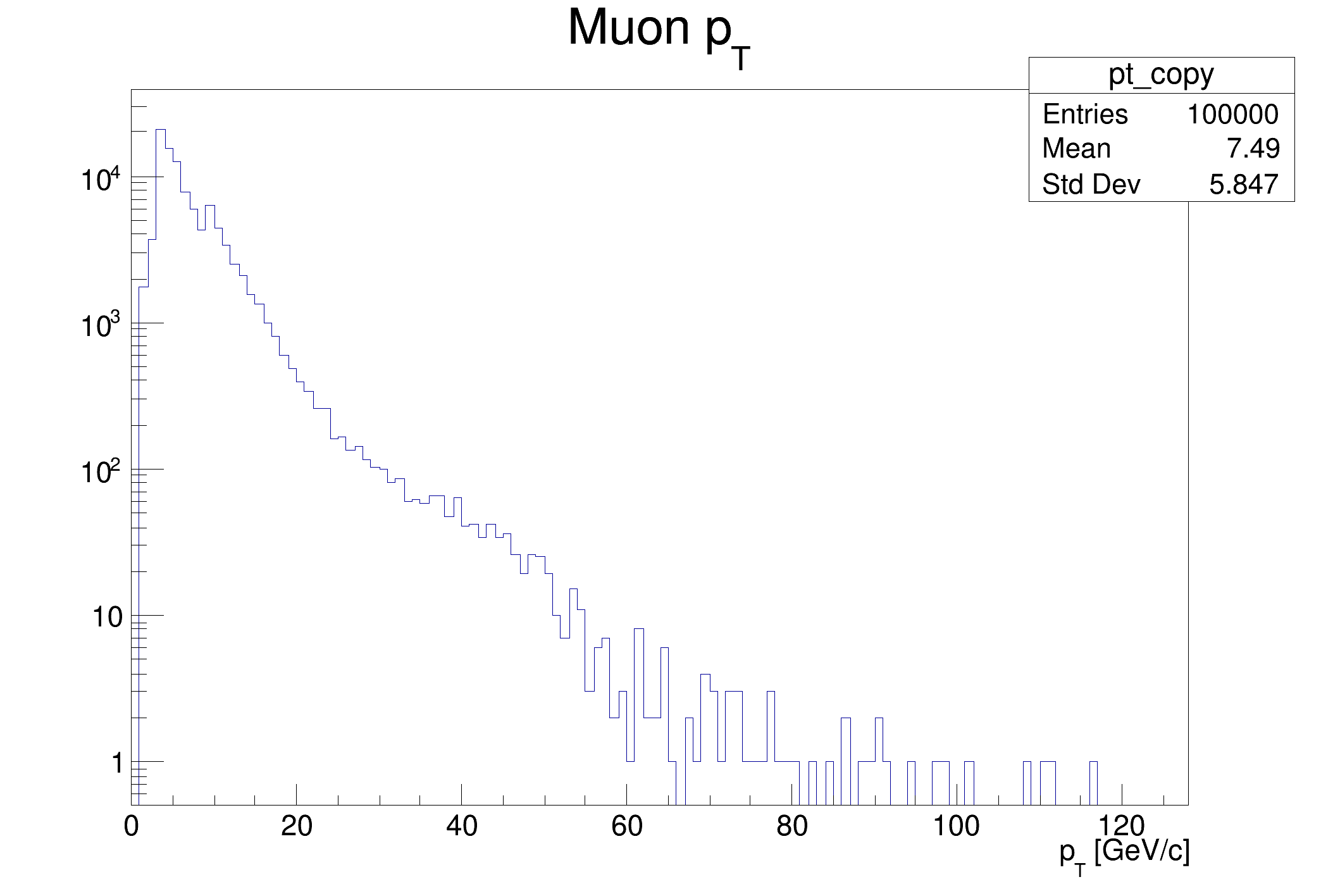
 This tutorial illustrates how to take advantage of a lazy data source creating a data frame from columns of one or multiple parent dataframe(s), delaying the creation of the columns to the actual usage of the daughter data frame.
This tutorial illustrates how to take advantage of a lazy data source creating a data frame from columns of one or multiple parent dataframe(s), delaying the creation of the columns to the actual usage of the daughter data frame.
Dataset Reference: McCauley, T. (2014). Dimuon event information derived from the Run2010B public Mu dataset. CERN Open Data Portal. DOI: 10.7483/OPENDATA.CMS.CB8H.MFFA. From the ROOT website: https://root.cern.ch/files/tutorials/tdf014_CsvDataSource_MuRun2010B.csv
int df015_LazyDataSource()
{
auto fileNameUrl = "http://root.cern.ch/files/tutorials/df014_CsvDataSource_MuRun2010B.csv";
auto fileName = "df015_CsvDataSource_MuRun2010B.csv";
std::string px1Name = "px1";
auto px1 = csv_rdf.Take<double>(px1Name);
std::string py1Name = "py1";
auto py1 = csv_rdf.Take<double>(py1Name);
auto tdf =
MakeLazyDataFrame(std::make_pair(px1Name, px1), std::make_pair(py1Name, py1));
auto ptFormula = [](
double px,
double py) {
return sqrt(px * px + py * py); };
auto pt_h = tdf.Define("pt", ptFormula, {"px1", "py1"})
.Histo1D<double>({"pt", "Muon p_{T};p_{T} [GeV/c];", 128, 0, 128}, "pt");
can->SetLogy();
pt_h->DrawCopy();
return 0;
}
virtual Bool_t Cp(const char *dst, Bool_t progressbar=kTRUE, UInt_t buffersize=1000000)
Allows to copy this file to the dst URL.
RDataFrame MakeLazyDataFrame(std::pair< std::string, RResultPtr< std::vector< ColumnTypes > > > &&... colNameProxyPairs)
Factory method to create a Lazy RDataFrame.
RDataFrame MakeCsvDataFrame(std::string_view fileName, bool readHeaders=true, char delimiter=',', Long64_t linesChunkSize=-1LL)
Factory method to create a CSV RDataFrame.

- Date
- February 2018
- Author
- Danilo Piparo
Definition in file df015_LazyDataSource.C.



 This tutorial illustrates how to take advantage of a lazy data source creating a data frame from columns of one or multiple parent dataframe(s), delaying the creation of the columns to the actual usage of the daughter data frame.
This tutorial illustrates how to take advantage of a lazy data source creating a data frame from columns of one or multiple parent dataframe(s), delaying the creation of the columns to the actual usage of the daughter data frame. 